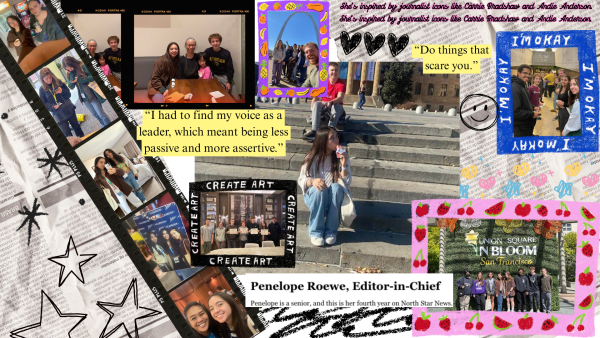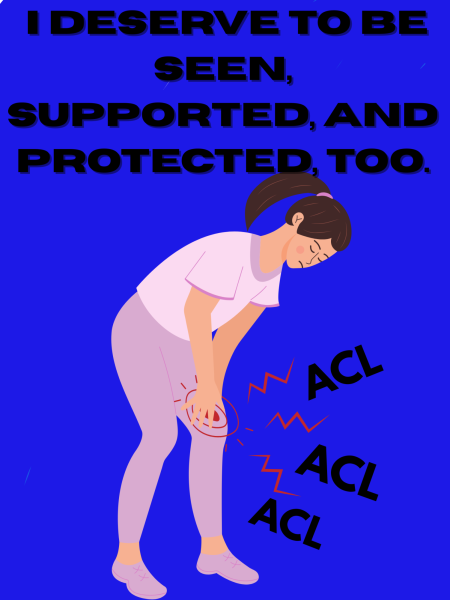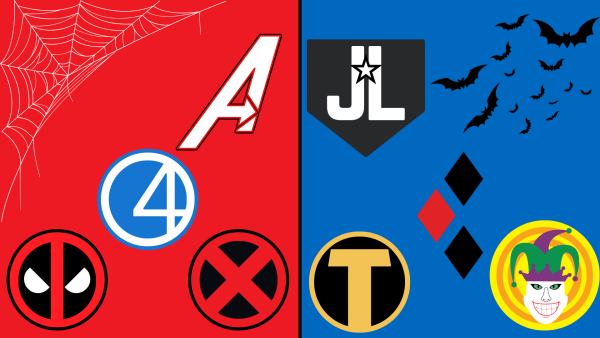How NN seniors found the joy in comparison when applying to college
“In no more than 720 words, describe how applying to college has been so far.”
After clicking the “Submit” button on CommonApp, a pop-up fills my screen as I read: “Congrats! You have submitted your application to ___ University!”
I thought I would feel like a weight was lifted off my shoulders. The grown-ups in my life are telling me that I have just taken a “monumental step” in becoming an adult and that I should feel proud of myself for getting over that first hump.
Yet no amount of arbitrary confetti will fix the gaping hole in my stomach that I realize that I just signed myself away to college; just seeing my life become condensed into a 15-page PDF was a lot more jarring than I thought it would be. I should feel happy, but on the contrary, I feel burnt out.
Let’s get one thing straight: being able to go to college is a privilege. Being able to afford college is a privilege. The fact that I am able to even submit an application in the first place when some of my family didn’t even go to college is celebratory in itself.
And yet, I still feel like given the circumstances, there was always something that I could have been doing more of. I should have studied more for that math test. I should have taken up that one opportunity to volunteer. Maybe if I just pushed myself a little bit more, I wouldn’t have to deal with a severe case of “Imposter Syndrome”.
And that is the problem that I and thousands of other high-schoolers are having across the country: kids who are looking to apply to good schools in order to get a good job and make good money are sucked into taking 20 AP classes, studying for a 1650 SAT, becoming the CEO of Tesla and curing cancer just so they can (at most) be waitlisted at Harvard.
The level of success that a high-school student needs to achieve in order to be considered for top schools is partially based on a) how much wealth you have, and b) how many opportunities you have. Not everybody has the ability, nor the resources, in order to study to score high on standardized tests, or be able to start nonprofits that raise hundreds of dollars.
The Ivy Leagues and other schools of Ivy caliber, to a certain extent, are not worth the $80,000 a year price tag. Depending on the fit, it doesn’t really matter about the school; it matters what you do in the environment that you are in. And highly driven students, regardless of their college, will succeed basically anywhere.
Yes, prestigious schools have more resources, but prestige should not be the only metric that matters in this process; location, size, activities, program strength, job placement, internship opportunities, party life, etc. are all much bigger factors than prestige.
“A good school is only as good of a school that is good for you,” College and Career Counselor Allegra Giulletti-Schmitt said. “And the truth is, what is good for you may not be good for your peer, even if you are taking the exact same set of classes in high school and have the exact same, or, as I should say, perceived to be the same set of ultimate goals or major or career path.”
Not everybody feels the same exact way that I do, because the college application process is so different for each and every high school senior. Although I know that I am not alone in these sentiments, I also know that many other people (including myself) feel excited about what is to come, and that college applications are, in a way, mark the bridge between adolescence and adulthood.
“It’s surreal for me because I never thought like coming from where I’m from, from Nigeria,” senior Bolu Apantaku said. “Like I didn’t think like I will be going to college in the United States, so for that to be coming to like a whole possibility was kind of just amazing.”
So my biggest takeaway from this? Apply to schools you are genuinely interested in attending. Understand that college applications are not a measure of your intelligence. And above all? Trust the journey. Everything will work out the way it is supposed to.

Olivia (Liv) Frey is the Editor-in-Chief and Opinion Editor of North Star News. Ever since joining NSN her freshman year, she has grown a deeper love...








Salman Mehdi • Nov 18, 2022 at 8:05 pm
I appreciate this article as a Senior. It eased my nerves